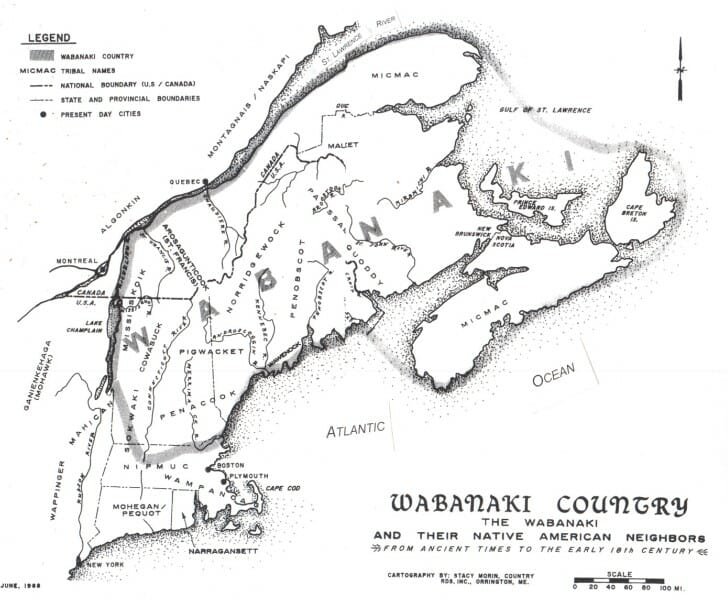WABANAKI
Wabanaki means People of the Dawnland. The term Wabanaki is derived from the Algonquian root word Wabanakik, meaning “Dawnland” "waban" meaning light/white referring to the light from the East (sunrise), combined with the word for "land", being "aki." Waban-aki can be translated a number of ways but is most often translated into "Dawnland", “People of the Dawn”, or “People of the First Light” – (meaning the East where the sun rises.)
The Wabanaki include five First Nations: Wolastoqiyik, Mi’kmaq, Penobscot, Passamaquoddy, and Abenaki. Traditional Wabanaki territory includes areas of what is now known as Eastern Canada and the Northeastern United States – specifically New Brunswick, Nova Scotia, Prince Edward Island, Newfoundland, eastern Quebec, Maine (USA), and Vermont (USA).
Wabanaki is also described as the land in which these nations have lived since time immemorial. This is where they fished the rivers, hunted the land, and gathered food and medicines. It is where they called home. In historic times, they used this land as a central meeting place to trade, hunt, and fish with one another during the summers.
Historically, the Wabanaki Confederacy (a political union between 5 Indigenous Nations) was first established to better protect communities from Iroquois and later European encroachment, today a primary goal of the Wabanaki Confederacy is to assert the ancestral jurisdictions of the Wabanaki Peoples, including traditional use and protection of the Wabanaki Forest. As Europeans settled and seized land, the Wabanaki were relegated to remote and isolated places. Each of the Wabanaki tribes has its own territory made up of reservation, trust and/or fee/crown lands.
The Wabanaki Confederacy was disbanded by the British in 1862, however, it was revived in 1993 by the Penobscot, and the Wabanaki Council Fire has been kept burning since that time. The Council Fire is a metaphoric and literal fire. The fire represents the spirit of peace and friendship between the nations. Like a fire, diplomatic relationships require work and effort to keep burning. It is the responsibility of all Confederacy members to maintain these relationships. The fire (responsibility) is passed from nation to nation to tend and to call the annual Confederacy together.
WABANAKI SYMBOL
WABANAKI TERRITORY


